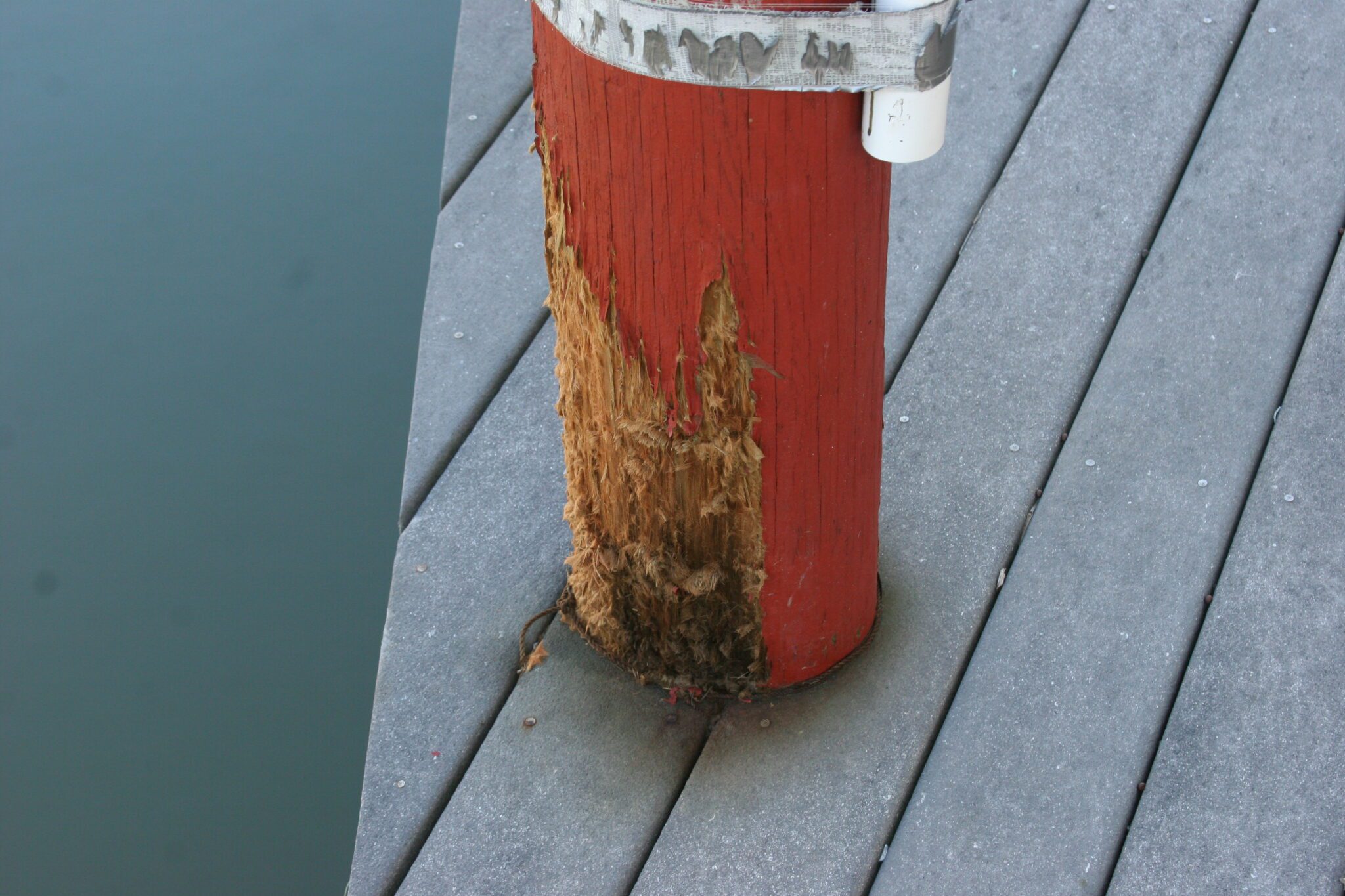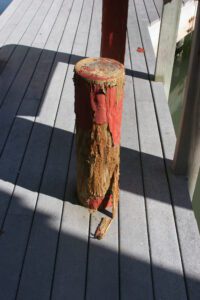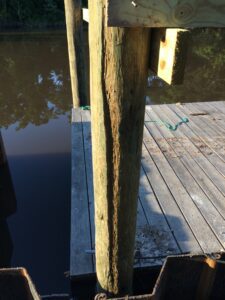Tracheid Separation in Wood Pilings
Tracheid separation in wood pilings — often called "horsehair rot" or “salt kill” -- is a common issue that can occur in wood pilings installed in or next to saltwater. You might have seen pilings on a dock or pier in the ocean that look "fuzzy" or like "hair" is peeling off of them. Tracheid separation only occurs in saltwater. It does not happen in fresh water and it also has nothing to do with the pressure treatment used in wood pilings, a common misnomer.

What are Tracheid?
Tracheid are long, thin cells that make up the majority of the structural support in trees and other woody plants. When these cells are separated, the structural integrity of the wood is compromised, making it less strong and more susceptible to failure.
What Causes Tracheid Separation?

The cause of tracheid separation in wood pilings next to saltwater is the constant cycle of wetting with saltwater and drying, especially in hot areas. As the wood absorbs salt water, the tracheid cells in the wood begin to break down and separate, weakening the structure and rapidly drying the wood in direct sun and high temperatures further escalates the separation of the cells. The constant repetition of this cycle eventually causes the common horsehair appearance.
Methods of Prevention
Preventing tracheid separation is difficult. Pilings that are shaded are generally less susceptible to it but are definitely not immune, especially in hot climates. Coating wood pilings with a polyurea wood coating, such as Polyshield from American Pole & Timber, is an option. The polyurea (it looks and feels like a thick, semi-pliable vinyl coating) coating keeps the wood from getting wet so the constant wet-dry cycle is eliminated.
Assessing Tracheid Separation in Wood Pilings

If tracheid separation is discovered in an installed wood piling, you should assess the level of structural degradation that has occurred. If the piling is deemed to be structurally sound, you can minimize further damage by coating the affected area(s) of the piling. This will help to ensure the structural integrity of the dock, pier, boathouse, or other marine structure, and prevent potential safety hazards. If the piling is no longer structurally sound, it should be replaced.
Alternative Solutions
Another solution is to build marine structures with vinyl-fiberglass composite pilings, such as EcoPile pilings from American Pole & Timber instead of wood pilings. EcoPile vinyl-fiberglass composite pilings are structural, easy to build with, and they are 100% impervious to attacks by wood boring organisms in water such as barnacles and shipworms.
Discover More Solutions
Tracheid separation in wood pilings is a serious issue that can compromise the structural integrity of wooden structures in or near saltwater. The only solution to avoiding tracheid separation is building with poly-coated wood pilings or vinyl-fiberglass composite EcoPiles. Visit our treated lumber and vinyl is final pages to see all the treatment & marine construction solutions we provide.
